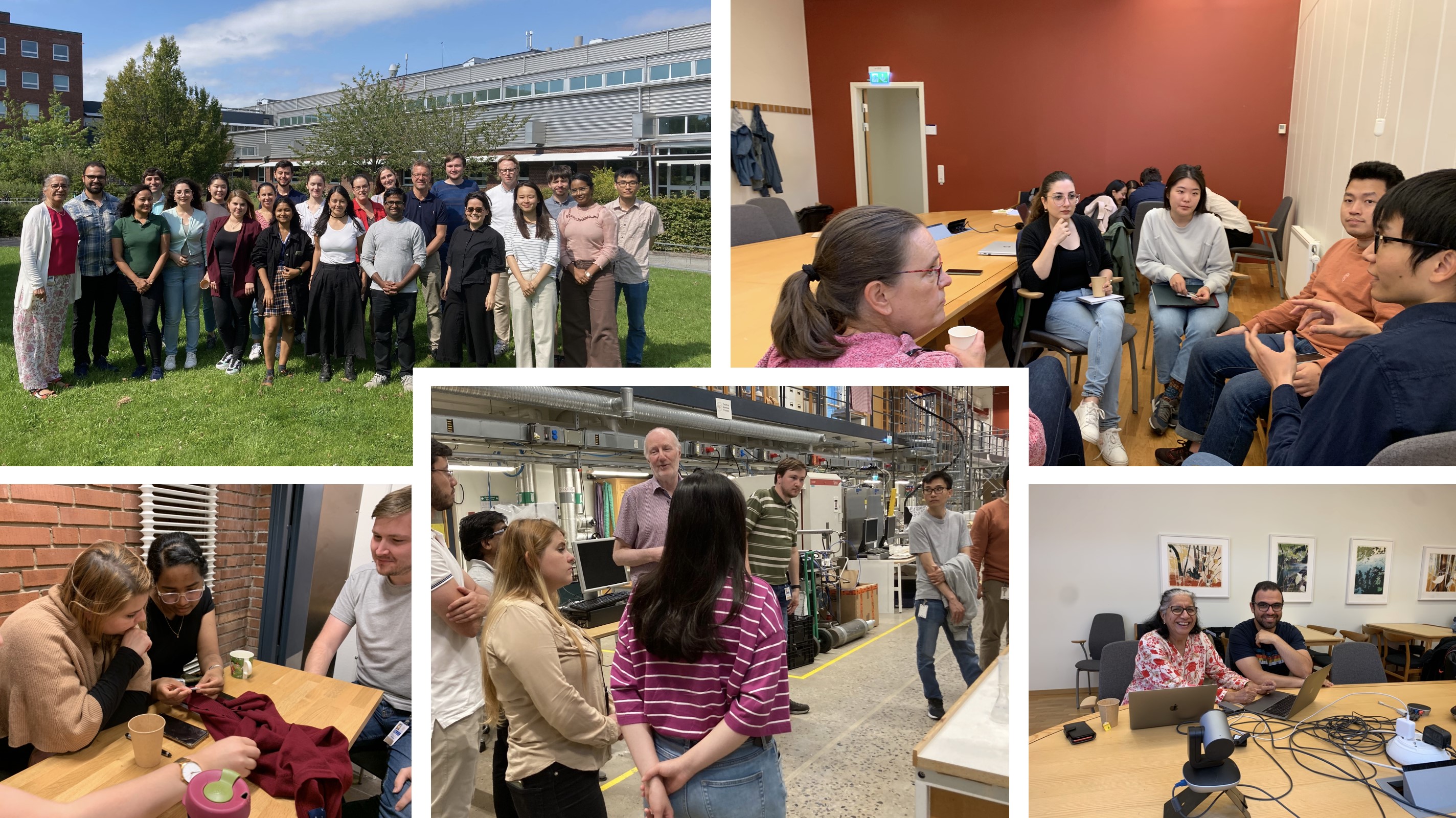School on Sustainable Plastics Dispels Myths and Removes Misunderstandings
A great overview of the plastic system, an interesting inclusion of industry perspectives, and incredibly well planned! These are just some of the positive comments on the recent summer school on sustainable plastics organised by the research programme STEPS, which is led by researchers from LTH. It gathered 30 participants, students with different backgrounds from different departments at Lund University, and even other universities, as well as engineers and specialists from different companies.
– Published 22 September 2023

The course ran for two weeks in August and aimed to provide an understanding of the current plastic system and its challenges, pathways to a sustainable plastic system, biobased and biodegradable plastics, recycling solutions, policies, and standards for sustainable plastic.
– We wanted to remove some of the misunderstandings about plastics by presenting an overview of the whole plastic system. We do not advocate a ban on plastics, but instead to find ways how to produce and use it sustainably, says Professor Rajni Hatti-Kaul, STEPS programme director, and professor in biotechnology at LTH.
– Involving industry partners in the school was important to connect it to real life. They have first-hand knowledge and experience of how the plastic system functions and its limitations and can also give perspectives on how one could move away from fossil-based plastics. They provided added value to the school and for the participants, and made it stand out from other theoretical seminars.
The majority of participants were very happy with the course, especially the opportunity to listen to people from industry was highlighted by many. Another positive aspect was the diverse mix of both lecturers and students, which helped to create dynamic conversations and facilitated new perspectives. They also liked the exercise where they had to count all the plastic packaging they used over the course of a week.
Matilda Johansson is a PhD student in biotechnology at LTH.
– I know a lot about biotechnology but not so much about plastics. I was amazed at the diverse lectures, which covered so many aspects of plastics. I was happy that people came from different backgrounds. They asked questions I would never ask! All in all, it felt more like a conference than a course!
Oskar Boström is a PhD student in polymer technology at Lund University.
– My research is very focused on how to develop properties and functions of new polymers. By taking the course, I got to learn some basic insights about the issues of recycling plastics.
Arvind Kumar Gupta is a researcher at the Centre for Analysis and Synthesis, Lund University.
– My view used to be that plastic was a bad material, but the course has changed my mind. It has been interesting to learn about how to make plastics useful in your daily life. It is a good initiative since it gives an opportunity to learn together.
Micaela Mafla Endara is a PhD student in microbial ecology at Lund University:
– The political and social aspects of plastic production were interesting to learn about, as well as the new techniques developed to produce more sustainable plastics, to recycle more efficiently and to improve the degradation of complex materials. I also liked that people in the course were very aware of the problems and want to do something about it.
Chia-Wen Yang is doing a master’s in environmental studies and sustainability science at Lund University.
– I am from Taiwan where plastics is a serious problem. My aim has been to learn about how you do things here in Sweden. Learning about recycling has given me inspiration and ideas for what can be done at home. It surprised me that you don't have to wash the products before recycling as this practice helps in conserving water rather than wasting it.
Freya Dastoor has just finished a master's in Middle Eastern Studies at Lund University.
– I took the course because I wanted to learn more about plastics, and what contribution -positive or negative- the material has to environmental change. It has been great to learn about the properties of plastics, as well as recycling and packaging: there are so many hidden details about our use of plastics which need to be included in conversations about conservation and sustainability!
Renan Melhado works at Tetra Pak, which is one of STEPS partners.
– I work with injection moulding at Tetra Pak. I am impressed with the course presenting a more human and social and historical view on plastics. It gave me new perspectives on my own work. I will bring this with me when we brainstorm around new ideas at work.
Textiles and chemical recycling
For future courses, several students noted interest in including lectures on textiles and plastics, as well as more information on chemical and enzymatic recycling.
– It has been very interesting to meet all the students. It was great to hear so many insights and listen to the students’ point of view. We hope to run the school again and will then include the input we got during the two weeks, says Rajni Hatti-Kaul.
STEPS, Sustainable Plastics and Transition Pathways
STEPS research programme was initiated in 2016. Its vision is a future society in which plastics are sustainably developed, produced, used and recycled in a circular economy. It is led by Lund University, in collaboration with University of Copenhagen, RISE, IVL, 22 industrial partners and the Skåne Regional Council. STEPS is funded by Mistra Stiftelsen för miljöstrategisk forskning.
